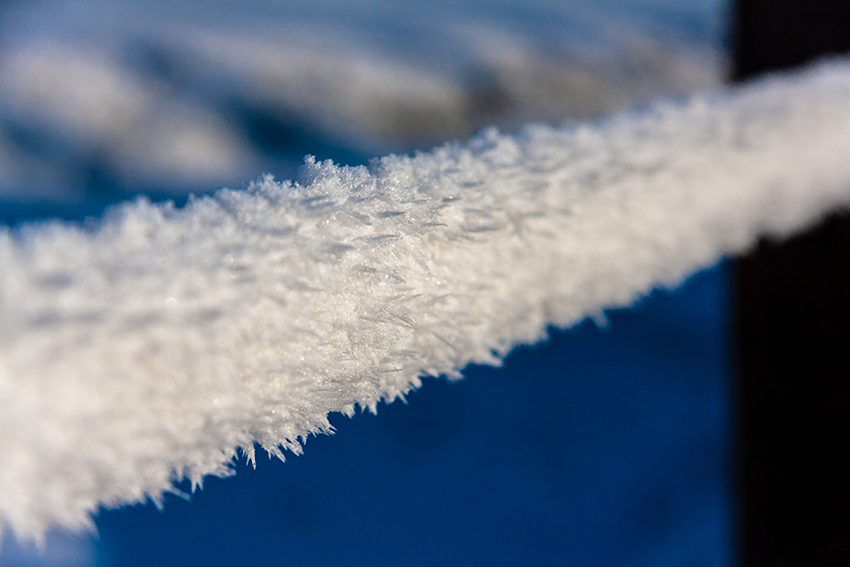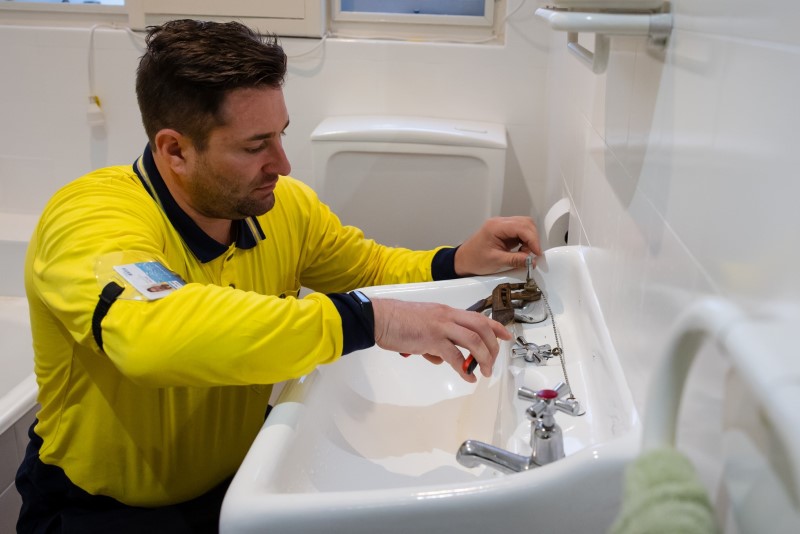Log in
Who to call if you need repairs
If you're confident about doing minor plumbing work like changing a tap washer, you can do it yourself. But for bigger problems, renovations, or replacing toilets or hot water systems, you must call a licensed plumber.
When to hire a plumber
You'll need a plumber to:
- fix bigger problems
- do renovation work
- replace hot water systems, toilets and showers.
Ask them to give you a Certificate of Compliance after they've finished the work. This certifies that the plumbing work meets the Plumbing Code of Australia.
Building Commission NSW is the regulator of the building industry in NSW. You can verify a plumber's licence, learn more about plumbing and drainage inspections and regulations, notices of work, certificates of compliance, sewerage service diagrams, and audit inspection fees.
What you're responsible for
You're responsible for maintaining the pipes and fittings on your property up to where they connect to our water, wastewater and stormwater networks. This is your point of connection.
The pipes and fittings include all:
- private water, wastewater and stormwater pipes and taps
- pumps, tanks and other equipment used on your private pipes
- pipes that you share with other properties
- private pipes that service your property, even if they're not on your property – the private pipes that supply your property may be on a neighbour's property.
You're also responsible for protecting any of our pipes and fittings that are on your land, and you must let us enter your property if we need to maintain or repair any part of the water, wastewater or stormwater systems.
Find out more about your responsibilities when connected to our services.
What we're responsible for
We're responsible for our pipes (all the pipes, channels and structures that provide services to you) and the water meter on your property. There may be other assets on your property that we also have to maintain.
Keep in mind that we don't offer a free repair service for:
- wastewater pipes
- private plumbing and drainage
- unauthorised connections
- pipes we can't get to easily
- pipes that have been damaged by others
- water pipes that run along the footpath or cross other properties to connect to our water network.
If you see a leak in our pipes, please tell us and we'll repair it.
When our pipes and fittings are on your property
If we have pipes and other assets on or near your property, we need your help to protect them from damage. They may be shown in an easement on your Land Title Deeds. If we hold an easement on your land, you must keep our assets clear and let us onto your property if we need to maintain, repair or replace them. You mustn't bury or build over them. If you damage any of our pipes or fittings, we may charge you to repair or replace them.
Water meters
Please make sure the area around the meter is clear and accessible so we can read, repair or replace it. If you have a second purple meter, you're getting recycled water. Learn more about your meter.
If you have a purple meter, you have recycled water.
Water, wastewater and stormwater pipes
Sometimes our pipes run under private property. If you're doing any building, excavating or landscaping work on your property, make sure you know where our pipes and other services are. Find out before you dig with Before You Dig Australia (BYDA). BYDA responds to online enquiries with free plans of our assets. If you're building over or next to our assets, we need to approve your building plans. Learn more about building plan approvals.
Wastewater pumps and associated equipment
Most people are connected to the normal wastewater system, but in some parts of Greater Sydney we have agreements with customers for pressure or vacuum systems. In these cases, we may need to maintain or repair pumps and associated equipment on your property. Find out more about different types of wastewater systems.
Hydrants
Hydrants enable us to access the water mains. They're usually covered by a metal or concrete plate and are on the footpath or roadway. Please don't build your driveway over them or bury the hydrants on the nature strip. Don't remove or obscure the small signs with 'HP' or 'HR' in red. These show the Fire & Rescue and Rural Fire Services where to locate the hydrants in case of fire. Finding the hydrant quickly can be critical during an emergency.
Maintenance holes
Maintenance holes may be on or near your property, usually near the boundary. These holes enable us to access our wastewater and stormwater systems to clear blockages. If we can't access these holes to clear blockages, wastewater or stormwater can back up in the pipe and flow out of pipe grates or openings into the street, your yard or possibly inside your home. Find out more about blockages below.
Ventilation shafts
Ventilation shafts (107 KB) allow air to enter and exit the wastewater system. This helps prevent the pipes from corroding.
If we need to enter your property
Under the Sydney Water Act 1994, you must allow us to enter your property to maintain or repair our water, wastewater or stormwater system when we need to. We'll usually write to you to arrange an appointment. We don't usually need you to be home as long as we have clear access and your pets have been secured.
We'll need to access our equipment for repairs and maintenance either on the street or on your property.
Finding and preventing leaks
Leaks occur when a pipe has been damaged, allowing water or wastewater to leak out of the pipe. Signs of a leak include:
- wet patches on your lawn during dry weather
- patches of lawn or garden that are growing better than the area around it
- a hissing sound coming from your water pipe
- a water bill with much higher water use than usual, although you haven't changed how you use water on your property.
Learn more about leak detection and how to find and prevent leaks.
If your bill is higher than expected, you may have a hidden leak. If a licensed plumber or qualified technician finds and repairs a hidden leak, you can apply for a hidden leak allowance on your bill.
Preventing wastewater blockages
Blockages occur when something inside the pipe stops water from flowing properly. Most blockages happen in wastewater pipes. They're usually caused by tree roots, unflushable items like wet wipes being disposed of in the toilet, oils and fats poured into sinks, and stormwater entering and overloading our wastewater network during heavy rain.
If the blocked pipes are on your property, you could be looking at a costly plumbing bill.
Signs of a blockage include:
- your sinks, bath or toilet empty slowly
- your toilet fills and drains slowly when flushed, or has overflowed
- your toilet or floor drain is making gurgling noises
- wastewater has overflowed from the drain (or gully) near your outside tap.
Learn more about wastewater blockages and how to prevent them.
If your pipes are frozen
If pipes have frozen, let them thaw. It's best to be patient – your meter and pipes will thaw naturally as the day warms up. Never try to speed up the process with boiling water. There's a risk your pipes will crack.
How to prevent pipes from freezing
When you know a cold snap's on the way, insulate above-ground pipes and meter with a bucket, plastic tub or cardboard box, or wrap them in foam, rubber, crumpled newspaper or a towel. Better yet, sleep easy over a long cold winter with half a tyre over your meter.

Always let frozen pipes thaw naturally.


